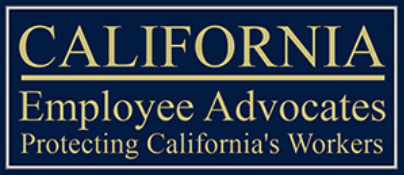Employers in the state may need to brush up on recent employment law changes and prepare for those still to come.
As the calendar turns to 2020, California has gone live with a number of new laws voted in as bills or ballot initiatives. Some are facing judicial challenges, the outcome of which will determine the nature of their final implementation.
But for now, employers may want to familiarize themselves with some of the most widely applicable and most impactful new laws.
AB-5: ‘the freelancer law’
AB-5 established anew employment law set of parameters for employers looking to label workers as independent contractors — instead of employees — called the “ABC test.”
“What California has done is set the default to employee, leaving the burden upon the entity that views the relationship different than the employee to establish the criteria that is set forth,” Mark Pearce, distinguished lecturer and executive director of Georgetown University Law Center’s Workers’ Rights Institute and former chair of the National Labor Relations Board, told HR Dive.
To be an independent contractor, the law requires that workers:
- Be free from the control and direction of the hiring entity in connection with the performance of the work, both under the contract for the performance of the work and in fact.
- Perform work that is outside the usual course of the hiring entity’s business.
- Be customarily engaged in an independently established trade, occupation or business of the same nature as that involved in the work performed.
On-demand service apps such as rideshare companies that rely on an army of freelance workers to fulfill their orders may be most affected. Uber, Postmates, and two drivers have filed a joint lawsuit against the state, calling the law unconstitutional. A group of freelance journalists filed a joint lawsuit against the state as well.
“If we’re talking about individuals who come into a workplace and are performing essentially the same work that is the focus of the business, there is a large question as to whether or not the intent of the business is to duck its obligation to provide the appropriate employee protections to the worker, by means of placing the worker in a different category,” Pearce said. “The party that is most disadvantaged is the worker in that situation.”
California Assemblywoman Lorena Gonzalez, D, who authored the bill, told local news that the Uber lawsuit alleging the law is unconstitutional is “bizarre.” “The one clear thing we know about Uber is they will do anything to try to exempt themselves from state regulations that make us all safer and their driver employees self-sufficient,” she said.
Industries exempt from the law are mostly in professional services or trades, such as doctors, electricians, independent consultants, architects and accountants. A recent ruling of the Superior Court of California in Los Angeles also exempted independent truckers from this employment law.
Media companies that rely on freelancers for blogging, reporting, photography and management of web properties also may be heavily affected. Vox Media, for example, recently laid off all California-based freelancers with plans to replace them with employees. The law also states a limit on the number of “submissions” a freelancer can contribute in a year and also defines what constitutes a submission.
“To designate workers as something other than an employee puts the onus on the workers to provide for their own insurance, to seek legal recourse through individual legal names,” Pearce said. “So a lot of burden that is placed on the worker when the worker’s relationship with the paying entity is not exactly equal.”
AB-51: Preserving the right to legal recourse
Another new state law would prohibit the use of some mandatory arbitration agreements as a condition of employment, but remains under a temporary restraining order (TRO) blocking it from taking effect. The TRO came just in time, Dec. 30, on the grounds that the law may stand in conflict with the Federal Arbitration Act.
The language of the bill does not specify arbitration, but rather prohibits companies or people “from requiring any applicant for employment or any employee to waive any right, forum, or procedure for a violation of any provision of the California Fair Employment and Housing Act (FEHA) or other specific statutes governing employment as a condition of employment, continued employment, or the receipt of any employment-related benefit.”
“The fallacy of the mandatory arbitration provision is that agreeing with the terms of the provision is a non-negotiable condition of employment and it’s not an equal playing field,” Pearce said. “Some courts have said it’s fair to both sides because the employee has the option not to take the job if she or he is unwilling to work under those conditions. Well, we know that that’s not equitable and ignores the reality of the employer-employee relationship. I think that California has recognized that and they want to address that.”
To plan for any changes that may be needed as a result of AB-51, lawyers from Ogletree Deakins suggested in a blog post that employers “that easily meet the interstate commerce test under the [Federal Arbitration Act] can implement an arbitration program or maintain their current arbitration program. Companies may want to have their arbitration agreements reviewed and updated if necessary.”
SB-188: Protection from discrimination based on hairstyle
FEHA prohibits employers from using discriminatory practices in the hiring, promotion and termination of employees. SB 188 added hairstyle, including “such hairstyles as braids, locks, and twists,” to the list of protected traits.
“[SB 188] acknowledges diversity… It seems to demonstrate a sensitivity that in modern society, conforming to a particular anglocentric look is no longer going to be a requirement for success in the job market,” Pearce said. “And that is revolutionary.”
AB-673 & SB-688: Penalties for late or incorrect wages
AB-673 updates existing labor code so employees can seek penalties for late wage payments. The penalty is $100 for the first violation. For further violations or anything deemed intentional, the penalty is $200 for each violation plus 25% of the wages owed.
SB 688 expands on existing labor codes to levy the same penalties for failure to pay minimum wage to companies that pay or cause an employee to be paid “a rate of compensation that is less than set by contract.”
Ogletree Deakins recommends “conducting spot audits of payroll practices to ensure that employees are receiving their pay in a timely manner. Also consider conducting an equal pay audit to identify whether certain job categories are vulnerable to equal pay claims.”
New minimum wages and minimum salary
With the new year, the state minimum wage became $13.00 per hour for employers with 26 or more employees and $12.00 per hour for employers with 25 or fewer employees. Additionally, the state’s salary threshold of overtime exemption is now $54,080 for employers with 26 or more employees and $49,920 for employers with 25 or fewer employees.
On top of that, four California cities enacted even higher minimum wages, according to law firm Fisher Philips: Oakland, San Diego, San Jose, Santa Clara. Another four will take effect July 1: Berkeley, Pasadena, San Francisco, and Santa Monica.
AB-1223: Leave of absence after organ donation
This employment law entitles employees to an additional 30 days of unpaid leave, in addition to 30 days of paid leave already permitted, to donate an organ.
AB-9: Employment discrimination statute of limitations
AB-9 extended the filing period for complaints of unlawful or discriminatory employment practices from one year to three years.
SB-778: Sexual harassment training guidelines
SB-778 sets out new sexual harassment training requirements. Employers with five or more employees must provide at least two hours of training on sexual harassment to anyone who manages other employees and at least one hour of training to “nonsupervisory” employees by Jan. 1, 2021. Thereafter, the training must be given again once every two years. The training must be provided within six months of hire or within six months of the assumption of a supervisory position.
SB-142: Lactation accommodation
SB-142 requires that work locations have rooms for lactation that are “safe, clean, and free of hazardous materials.” Rooms must also contain a surface to place a pump and personal items. Employers must also provide access to electricity or alternative devices and access to a sink and a refrigerator near the employee’s workspace. Employers with fewer than 50 employees may seek a hardship exemption.
AB-25: California Consumer Privacy Act
The California Consumer Privacy Act grants consumers certain rights regarding personal information that is owned by businesses. This includes the right to request disclosure of the specific kinds of personal information a company has collected and to have information deleted. AB-25 offers some clarification as it relates to data collected through the employment process.
There are three main points to AB-25 that are relevant to the start of 2020. First, disclosures extend to personal information collected from job applicants, employees or contractors. Second, businesses must have appropriate cybersecurity measures to protect sensitive data. Finally, those subject to the law must disclose the categories and business purposes for which information is being used. Employers must meet all consumer standards by Jan. 1, 2021.
AB-749: Ban on no-rehire provisions in settlement agreements
AB-749 employment law says that settlement agreements between an “aggrieved person” and an employer can no longer contain a provision that restricts an employee from obtaining future employment with that employer and any affiliated entities such as franchises or subsidiaries.
“Aggrieved persons,” are defined as people who have filed a claim against their employer “in court, before an administrative agency, in an alternative dispute resolution forum, or through the employer’s internal complaint process.”
According to the employment law, mployers can terminate employees or not rehire them “if there is a legitimate non-discriminatory or non-retaliatory reason for terminating the employment relationship or refusing to rehire the person” or if the individual committed harassment or sexual assault.
AUTHOR
Aman Kidwai
PUBLISHED
Jan. 23, 2020


What a web page you have here. You have a actual knack for making a site readable and easy about the eyes. Some sites appear like train wrecks, but not this 1 – it is a joy to learn. Don’t have time to learn all the content pieces right here, I found your web site while searching for something else on Yahoo. But I’ve bookmarked your homepage and can go to it regularly to study what’s new
Thought I would comment and say superb theme, did you create it yourself? Really looks really good!
This is such a great resource that you are providing and you give it away for free. I love seeing websites that understand the value of providing a quality resource for free. It?s the old what goes around comes around routine. Did you acquired lots of links and I see lots of trackbacks??